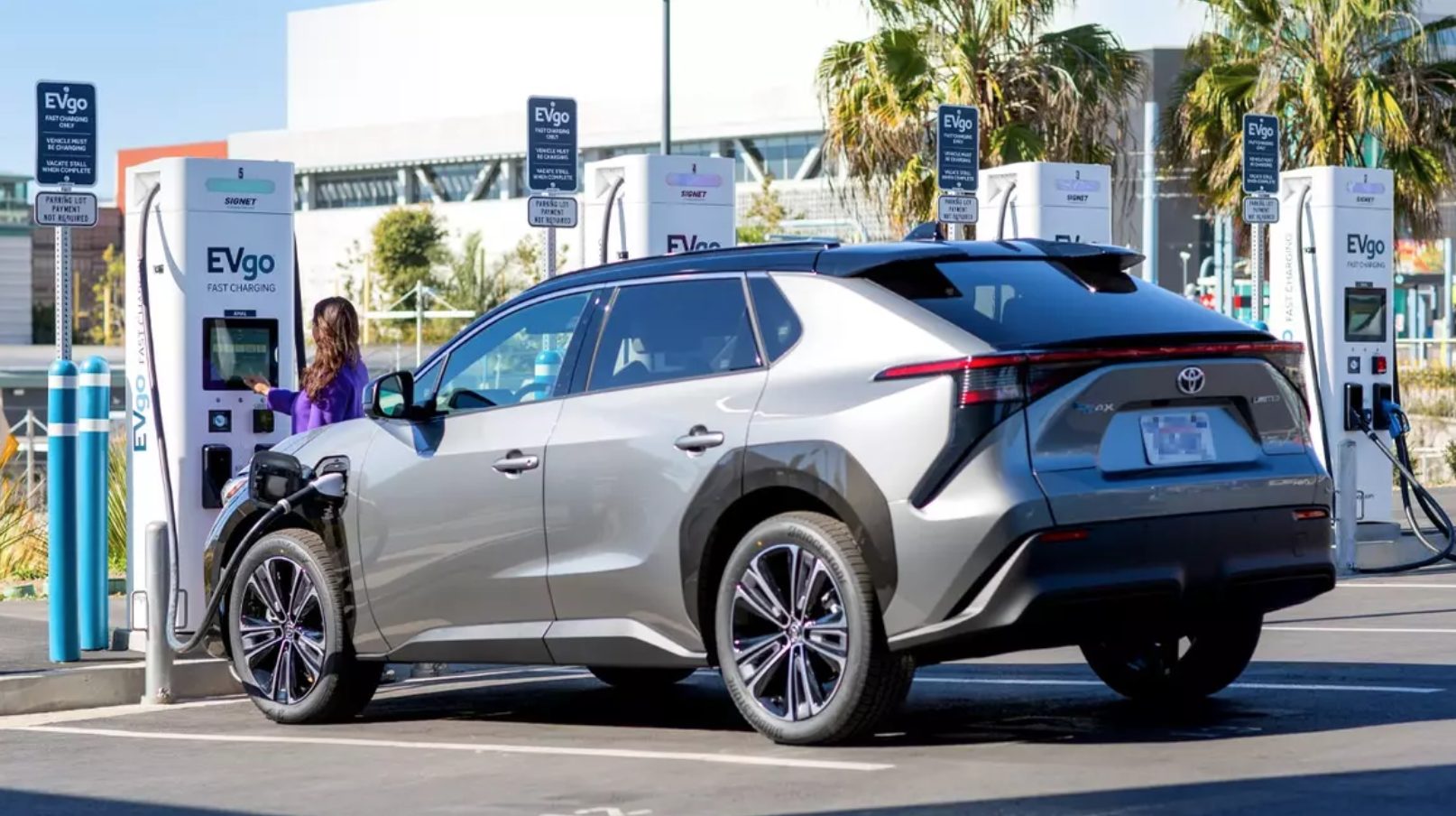
Toyota’s bZ4X EV Has Poor DC Fast Charging, May Stop in Cold Weather

Photo: EVgo
Toyota’s first mainstream entrant into the electric SUV market, the bZ4X, has some rather disappointing weather-dependent issues with EPA-rated range and DC fast charging.
According to MotorTrend’s hands-on, the bZ4X suffers from absolutely crippled DC fast charging speeds in colder climates.
In a recent press release that highlighted five things to know about the bZ4X, Toyota said “as temperatures decrease below 50 degrees Fahrenheit, charging time will increase significantly… and DC charging more than twice per day also can negatively affect charging time.”
While the range and charging capabilities of an electric vehicle (EV) are expected to take a hit in the cold, it usually isn’t this bad. What’s even more disappointing is that the issue appears to be even more severe on the all-wheel-drive (AWD) trim, of the bZ4X, which would be the obvious choice for anyone living in a colder climate where it snows often.
Toyota initially said DC charging simply may not work on the bZ4X AWD below 32°F (0°C, or freezing), but later revised this language to say, “For the bZ4X AWD model, charging may slow down more than other models in weather conditions below 32 degrees Fahrenheit and may not be possible when the temperature drops to around -4 degrees Fahrenheit and below.”
These fast charging limitations should disqualify the bZ4X from consideration for any potential buyer from a colder climate region.
Digging further and conducting a real-world charging test at one of Electrify America’s 150kW DC EV fast chargers, MotorTrend found that even in 64°F spring weather at nighttime in Los Angeles, the bZ4X AWD didn’t even touch its advertised max charging speed of 100 kW.
Instead, the bZ4X started charging at 62 kW and quickly ramped up to and peaked at 65 kW until it charged to about 33%. From there on, the charging speed tapered off and started dropping. During the DC fast charging session, the bZ4X took 20 minutes to charge from 5% to 40% and 64 minutes to charge to 80%, where you start to receive diminishing returns.
Charging the bZ4X from 80-90% took 36 minutes, and charging it to 100% would take a whopping seven hours at the 1 kW speeds you get after you exceed an 80% state-of-charge. Charging beyond 90% is actually faster at home on an AC outlet.
The folks at the publication even drove the e-SUV around for 45 minutes before plugging it in to make sure the battery pack wasn’t completely cold when they did.
Back in February, Toyota partnered with charging network EVgo to offer a free year of charging to bZ4X buyers. However, that’s not worth as much when the car doesn’t charge at anywhere near its advertised speeds and can’t fully take advantage of DC fast charging.


64 minutes to reach 80% is really long, and this is @ 18C (64F) which is a really not that cold at all… On a long trip where you have more than one big charging sessions in the same day, it starts to add a lot to the length of the travel.